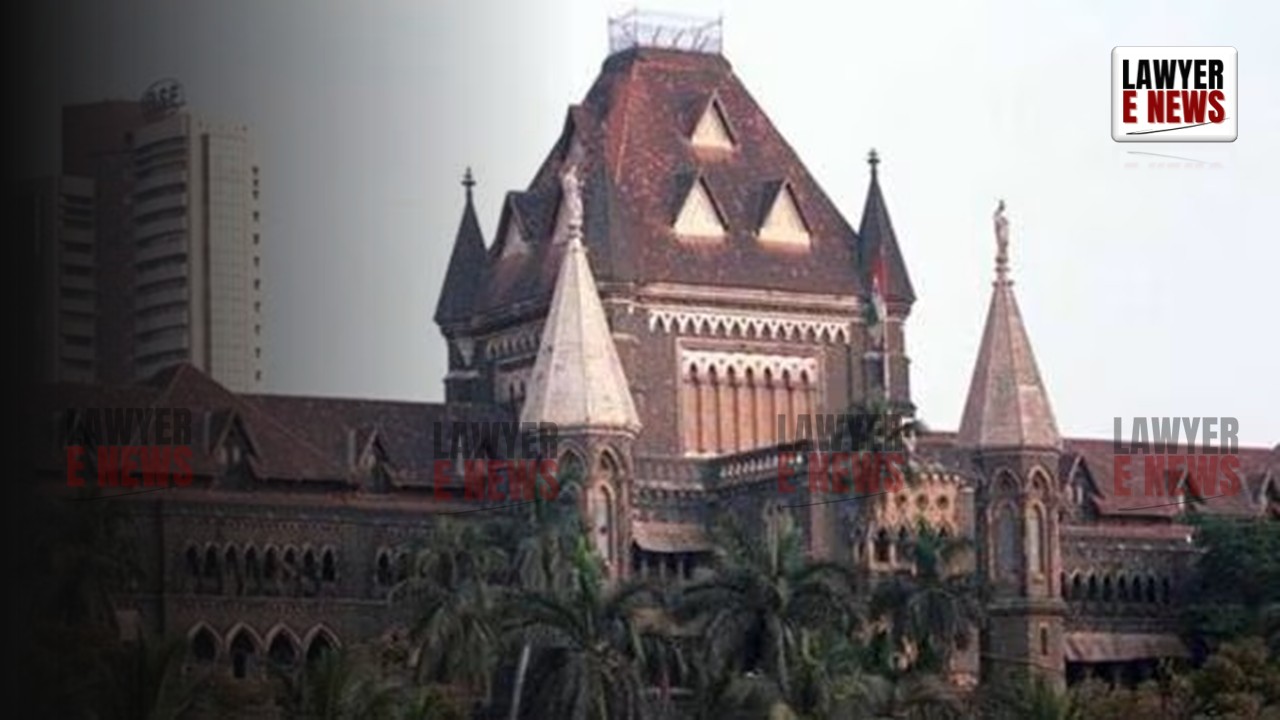-
by sayum
17 February 2026 5:39 AM



Once a No Dues Certificate is Issued, the Bank Has No Right Over Pledged Securities – In a decisive ruling against wrongful retention of securities, the Bombay High Court has held that Punjab National Bank (PNB) cannot refuse to return pledged shares once a borrower has fully settled his dues and obtained a No Dues Certificate. Directing the bank to immediately transfer 11,25,000 ITC shares and all accrued dividends to stockbroker Shrikant G. Mantri, the court condemned the bank’s conduct, stating, "A pledgee cannot hold securities hostage after the debt has been discharged. Such refusal amounts to a breach of trust and fiduciary duty."
Justice Firdosh P. Pooniwalla, delivering the verdict in Interim Application No. 1915 of 2023 in Commercial Suit No. 132 of 2022, noted that PNB had no legal justification to withhold the shares, especially after acknowledging full settlement of dues in 2005. The court ruled that the bank’s failure to return the shares had caused significant financial losses to the plaintiff, including ₹9.64 crore in unpaid dividends.
"Pledged Shares Were Security for a Settled Loan – Bank Cannot Hold Them for Unrelated Dues" – Court Rejects PNB’s Defense
The dispute arose from an overdraft facility granted by Nedungadi Bank Ltd. (later merged with PNB) to Mantri in 2001, against which he pledged 37,50,000 shares of Ansal Hotels Ltd., later converted into 11,25,000 ITC shares. Following financial difficulties, Mantri entered into a One-Time Settlement (OTS) with PNB in 2005, paid all dues, and obtained a No Dues Certificate. However, despite repeated demands, the bank refused to release the pledged shares.
Challenging the suit, PNB claimed that the shares were pledged not only for the overdraft facility but also for dues arising from share trading transactions. Rejecting this argument, the court observed, "Multiple judicial forums, including the Supreme Court, have conclusively held that these shares were pledged only for the overdraft facility. The bank’s attempt to link them to other dues is an afterthought and legally untenable."
Referring to previous litigation, the court noted that the Bombay Stock Exchange’s Arbitration Tribunal had ruled in 2004 that there was no evidence connecting the pledged shares to share trading dues, a decision upheld by the Supreme Court in 2010.
Dismissing PNB’s argument, Justice Pooniwalla declared, "This issue has been settled at the highest judicial levels. The bank is barred from revisiting it under the principles of res judicata and issue estoppel."
"Holding Pledged Securities After Full Payment is Illegal – A Bank Cannot Use its Position to Unjustly Enrich Itself"
Taking a firm stance against the bank’s prolonged refusal to return the shares, the High Court ruled that once a financial institution issues a No Dues Certificate, it loses any claim over the pledged securities. The judgment stated, "A pledge is a form of bailment, and once the secured debt is discharged, the lender is legally bound to return the pledged assets. Retaining them is not only wrongful but also an abuse of financial power."
The court observed that the plaintiff had pursued all possible legal remedies, including proceedings before the National Consumer Disputes Redressal Commission (NCDRC) and the Supreme Court. When PNB argued that Mantri’s claim was barred by limitation, the court rejected the contention, holding that the time spent pursuing remedies before judicial forums must be excluded under Section 14 of the Limitation Act.
"The bank's conduct in withholding these shares, despite repeated requests, has caused significant losses to the plaintiff. The dividends accruing on these shares were wrongfully withheld, depriving the rightful owner of his financial benefits," the court remarked.
"Bank Must Transfer Shares and Pay Dividends with Interest" – High Court Passes Summary Judgment in Favour of Stockbroker
Relying on Order XIII-A of the Code of Civil Procedure, which allows for summary judgment where the defense has no real prospect of success, the court ruled that PNB’s refusal to return the shares was legally indefensible. It directed that:
"The bank shall forthwith transfer 11,25,000 ITC shares to the plaintiff along with all accrued bonuses, rights, and dividends. Additionally, the bank shall pay the plaintiff ₹9.64 crore in withheld dividends, with 18% interest per annum from the date of declaration of each dividend until realization."
The court also barred PNB from making any further claims on the shares, declaring that the bank had no right to retain them under any pretext.
"This Ruling is a Warning to Banks: Once a Debt is Paid, the Securities Must be Returned Without Delay"
The Bombay High Court’s decision establishes a critical precedent for banking and financial disputes, ensuring that borrowers who pledge securities are not unfairly deprived of their assets even after repaying their dues. The court’s firm stand against financial institutions using pledged assets as leverage beyond the legal scope of a loan is expected to have a far-reaching impact on lending practices.
By recognizing the wrongful deprivation of shares and directing full restitution with interest, the judgment reinforces the principle that financial institutions must act fairly and in good faith. The ruling serves as a strong warning against banks misusing their authority to withhold pledged securities beyond the loan tenure.
Date of Decision: 10 March 2025
